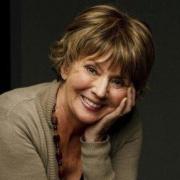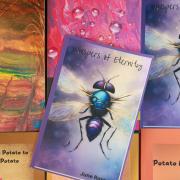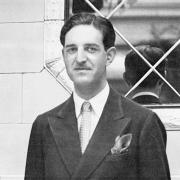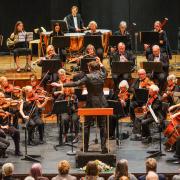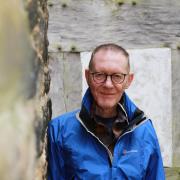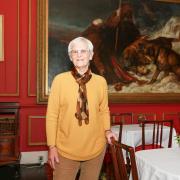A remarkable young man with a life threatening illness is helping to front a campaign for a badly-needed new complex

If you ever need persuading that quality rather than quantity is what really matters in the lives we lead, then ten minutes in the company of David Sage is likely to convince you.

David is a young man who has endured more medical hardships in his 27 years than most will experience in a lifetime. Despite this, he continues to work for the benefit of others and he has encountered some pretty remarkable characters along the way.
Now, he is helping to spearhead a new charity which aims to aid other young people with life-threatening conditions.
David’s story starts when he was ten. Doctors confirmed he had a particular rare and dangerous condition which attacks the muscle cells. It was a bleak prognosis - he could be dead by the time he reached 12.
This was caused by a genetic defect and is not dissimilar to a condition called Pompe Disease which featured in a 2010 Hollywood film, Extraordinary Measures, starring Harrison Ford as a pioneering medic.
There are few known sufferers so research is thin on the ground. Those with it struggle to reach their teens and one recorded victim died of heart failure, aged 16.
David’s life was heading towards that same tragic conclusion when, with just days to go, he was fortunate enough to have a life-saving heart transplant. It hasn’t been a cure but it has stabilised the condition.
David, who lives in Blackpool, is reliant on a wheelchair, gets fatigued quickly and takes a long time to get going in the mornings. But what he might lack in physical power he makes up for with mental strength.
His parents, Helen and Andrew Sage, vicar of St Stephen on-the-Cliffs, were pleased he got into Treloar School in Hampshire. This is a place where independent-minded disabled youngsters get a mainstream education and a ‘can-do’ attitude.
‘It taught me that being disabled didn’t mean you were incapable of doing anything.’ He also gave him a inquiring and, perhaps, mischievous nature.
‘I was in a group of students, who wanted to push the boundaries. We just went for it,’ he laughs. They sent letters to all and sundry. As a result, Mohamed Al Fayed gave them a VIP private tour of Harrods, they went to Pinewood Studios and met Angelina Jolie on the set of Tomb Raider and he shook hands with James Bond actor Daniel Craig.
The then Prime Minister Tony Blair couldn’t avoid their attention. ‘We wrote him challenging him to debate changes he was making to disability rights,’ says David. ‘We felt he had failed to consult with the people it most affected.’ The PM agreed and you suspect they gave him a fairly hard time.
David, who went on to complete a history and deaf studies degree at UCLan in Preston, is also keen on sport and he trained Treloar pupils in basketball, swimming and hockey. ‘It meant I watched some of the students I’d helped to train take part in the London Paralympics. It was quite something watching them,’ he says.
Most remarkable of all, he had an audience with Pope John Paul II and the pontiff was moved to give him his rosary. That meeting happened just as doctors had told his family that David had only days to live. Then came the news they had barely dared hope for – a heart was available and David was taken into Papworth Hospital and the transplant was a success.
One of his less memorable experiences was being rushed into hospital after being taken seriously ill. ‘David found himself on a geriatric ward with elderly dementia patients. It was completely inappropriate for a youngster,’ says his mum, Helen.
That is one of the reasons why he is now acting as an ambassador for Life Now, which aims to raise enough money to set up and run a north west centre of excellence for people aged 18-35 who require palliative care. As health care advances, young people who would have been expected to die in childhood can live significantly longer but the care safety net disappears when they reach adulthood.
George Thomas, a retired clergyman from Blackburn, is overseeing the Life Now campaign. He says: ‘We are not in competition with other hospices but care for children gets funds because it is such an emotive subject. Children become young adults yet people are deaf and blind to their needs. Children and the elderly get attention but those in the middle fall through the gap.’
David adds: ‘You reach a certain age when the care and the funding for many vitally important pieces of equipment just come to a halt. Relatives try to fill the gap but they can be elderly and need help themselves.
‘There’s a great divide, a wilderness. Life Now can help to fill that gap and get the message across that young adults want to be with people of their own age group. We are not ready to spend our days sitting in a chair watching Jeremy Kyle. For many of us, the quantity of life is not an issue – it’s all about quality. ’
Life support
Life Now aims to raise £9 million to establish a centre for excellence, providing mainly short-term palliative care for the equivalent of 85 young adults in the north west.
‘The aim is to be complimentary to the local hospices across the north west not be a competitor,’ says George Thomas, who was inspired to launch the campaign after seeing a similar facility with his wife in the south of England. They realised there was a need for more care centres for young adults.
The new facility, costing £3 a year to run and based close to the motorway network, probably in the Preston area, would have a music room, hydrotherapy facilities, cinema, lounge, bedrooms, kit chen, dibing room and flats to accommodate families.
If you would like to make a donation or help with the campaign contact Rev Thomas on 01772 330152, or by email at info@lifenow.org.uk. You can also find out more at www.lifenow.org.uk




